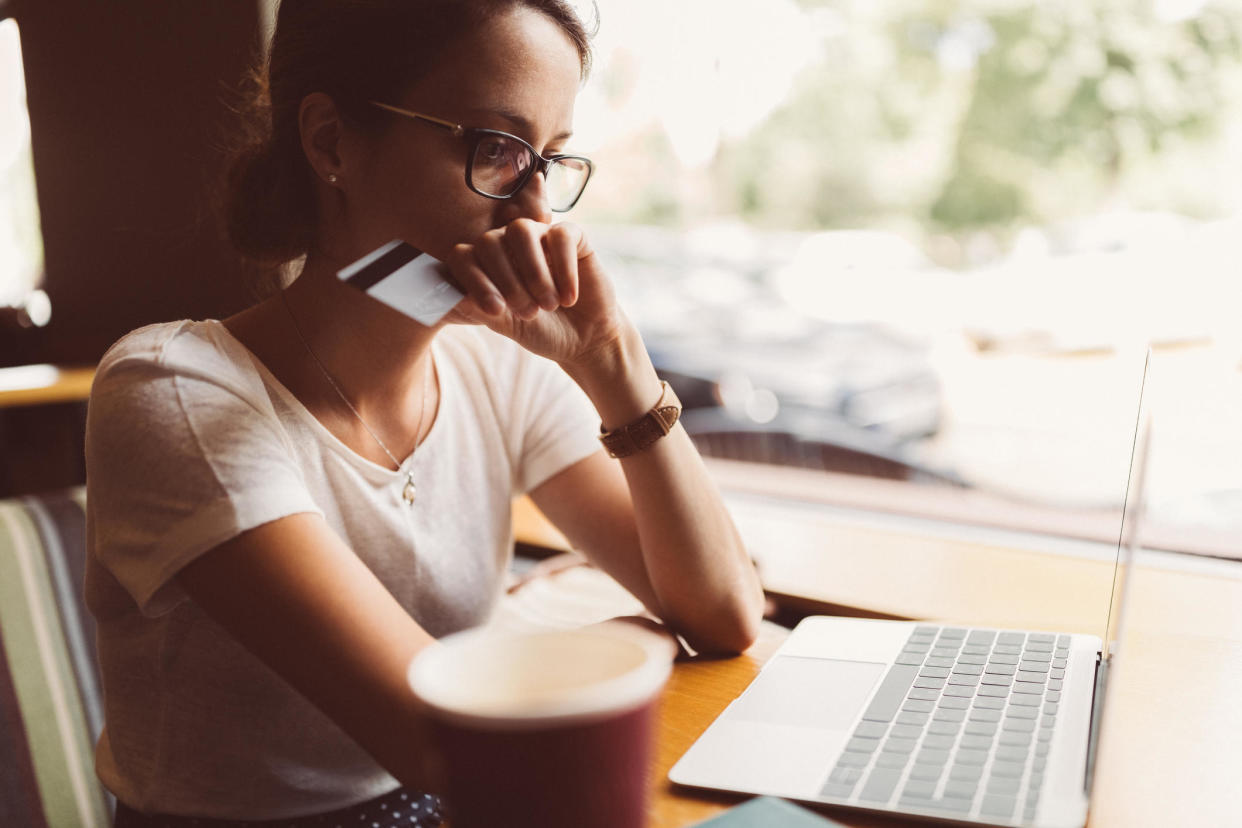Can you get an unsecured credit card with bad credit?

If you have bad credit, you probably already know how difficult it can be to qualify for an unsecured credit card. As a general rule, your odds of approval and snagging lower interest rates decrease the lower your credit score is.
Nevertheless, getting an unsecured credit card with a below-average credit score is possible, but read the fine print before applying. While many cards are good options to consider adding to your wallet, others come with a lengthy list of fees and limitations that may not be worth it.
You can increase your chance of obtaining an unsecured credit card if you first tackle your poor credit history. Credit repair experts can help get you started.
Can I get an unsecured credit card with bad credit?
Typically, you'll need a credit score in the good to excellent range (670-850) to get approved for an unsecured credit card. Some card issuers offer credit cards aimed at consumers with below-average or fair credit (580-669). The higher your credit score, the more likely you'll qualify for a credit card, so the closer you get to a 670 credit score (or higher), the better.
Remember: credit card companies consider more than your credit score when reviewing your application. Typically, applicants who qualify for unsecured credit cards tend to have a steady income and a credit report that doesn't show missed payments, collections, bankruptcies or other negative marks.
What is an unsecured credit card?
Before applying for an unsecured credit card, it's helpful to know exactly what you'll be getting.
An unsecured credit card is one that doesn't require you to put up collateral, such as a security deposit, to get approved. Unsecured credit cards provide you with a line of credit you can use to make purchases, complete balance transfers and cash advances. As a cardholder, you're responsible for paying back your account balance by making at least the minimum payment by the due date each month.
After reviewing your income, credit score, and other personal information, card issuers determine your eligibility and credit limit based on the likelihood you'll be able to make regular on-time payments on your credit card balance.
Unlike secured credit cards, unsecured credit cards aren't backed by a deposit as collateral, so your card issuer doesn't have access to funds if the account balance is unpaid. That's why card issuers consider numerous factors to limit their level of risk before approving a credit card application.
Put yourself in the best position possible to get a card by making sure your credit is in top shape. You can start repairing your credit right now. Multiple credit repair companies can assist you, too.
What are the pros and cons of unsecured credit cards?
Used responsibly, unsecured credit cards can be a valuable tool for building credit and earning rewards. By contrast, irresponsible use of these cards can lead to mounting debt and interest charges. Before applying for an unsecured credit card, consider the pros and cons:
Pros of unsecured credit cardsNo security deposit requirement: Unlike secured credit cards, which require a deposit for collateral ranging from $200 to $3,000, unsecured credit cards don't need a deposit.Lower interest rates: Unsecured credit cards typically come with lower interest rates than secured credit cards, even though the latter has access to a deposit to help mitigate the card issuer's risk.Potential for rewards: You may qualify for a credit card offering cash back rewards, points or miles.Low (or no) fees: If you're looking at different credit card offers, pay special attention to the fees. Some come with no annual or transaction fees.Cons of unsecured credit cardsApproval is more difficult: Getting approved for an unsecured credit card is challenging without a good credit score and credit history, among other criteria.Easy to overspend: With an unsecured credit card, you may have access to a higher credit limit than what you can afford to pay in full each month. As a rule, only spend what you can afford to repay by your due date. Otherwise, interest will begin to mount, making it harder to pay your bill.Should I get an unsecured credit card if I have bad credit?
While you may be able to qualify for an unsecured credit card, it may not be a good idea, especially if it comes with high interest rates and fees. Even with good credit, credit cards are an expensive way to borrow money, with interest rates typically higher than a personal loan and other borrowing methods. Additionally, some cards that target people with bad credit attach numerous fees to their credit cards, which may offset any benefits you might receive.
If you're applying for your first credit card, expect your credit limit to vary between $100 and $1,000, depending on your credit. It may not be worth applying for a credit card with a low credit limit if an extensive list of fees accompanies it.
On the other hand, if you can build credit or earn rewards and manage your credit responsibly, getting an unsecured credit card may make sense. Aim to work with well-known credit card companies offering reasonable rates and low fees before applying for an unsecured credit card.
And if you have poor credit (or little credit history) make sure you're putting yourself in a position for the best rates and terms by improving your credit score. You can start working on your credit right now.
NASA gearing up to launch its Artemis program, with eyes on the moon
What to know about first lady Jill Biden's rebound COVID case, plans for new boosters and more
MoneyWatch: The Uncertain Economy: Where did the workers go?

